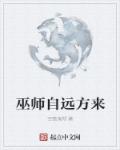LETTER 335
您可以在百度里搜索“The Works of Charles and Mary Lamb — Volume 6 艾草文学(www.321553.xyz)”查找最新章节!
LETTER 335
CHARLES LAMB TO ROBERT SOUTHEY
E.I.H., 21st November, 1823.
DEAR Southey,-The kindness of your note has melted away the mist which was upon me. I have been fighting against a shadow. That accursed "Quarterly Review" had vexed me by a gratuitous speaking, of its own knowledge, that the "Confessions of a Drunkard" was a genuine description of the state of the writer. Little things, that are not ill meant, may produce much ill. That might have injured me alive and dead. I am in a public office, and my life is insured. I was prepared for anger, and I thought I saw, in a few obnoxious words, a hard case of repetition directed against me. I wished both magazine and review at the bottom of the sea. I shall be ashamed to see you, and my sister (though innocent) will be still more so; for the folly was done without her knowledge, and has made her uneasy ever since. My guardian angel was absent at that time.
I will muster up courage to see you, however, any day next week (Wednesday excepted). We shall hope that you will bring Edith with you. That will be a second mortification. She will hate to see us; but come and heap embers. We deserve it, I for what I've done, and she for being my sister.
Do come early in the day, by sun-light, that you may see my Milton.
I am at Colebrook Cottage, Colebrook Row, Islington. A detached whitish house, close to the New River, end of Colebrook Terrace, left hand from Sadler's Wells.
Will you let me know the day before?
Your penitent C. LAMB.
P.S.—I do not think your handwriting at all like Hunt's. I do not think many things I did think.
[For the right appreciation of this letter Elia's Letter to Southey must be read (see Vol. I. of the present edition). It was hard hitting, and though Lamb would perhaps have been wiser had he held his hand, yet Southey had taken an offensive line of moral superiority and rebuke, and much that was said by Lamb was justified.
Southey's reply ran thus:—
My Dear Lamb—On Monday I saw your letter in the London Magazine, which I had not before had an opportunity of seeing, and I now take the first interval of leisure for replying to it.
Nothing could be further from my mind than any intention or apprehension of any way offending or injuring a man concerning whom I have never spoken, thought, or felt otherwise than with affection, esteem, and admiration.
If you had let me know in any private or friendly manner that you felt wounded by a sentence in which nothing but kindness was intended—or that you found it might injure the sale of your book—I would most readily and gladly have inserted a note in the next Review to qualify and explain what had hurt you.
You have made this impossible, and I am sorry for it. But I will not engage in controversy with you to make sport for the Philistines.
The provocation must be strong indeed that can rouse me to do this, even with an enemy. And if you can forgive an unintended offence as heartily as I do the way in which you have resented it, there will be nothing to prevent our meeting as we have heretofore done, and feeling towards each other as we have always been wont to do.
Only signify a correspondent willingness on your part, and send me your address, and my first business next week shall be to reach your door, and shake hands with you and your sister. Remember me to her most kindly and believe me—. Yours, with unabated esteem and regards, Robert Southey.
The matter closed with this exchange of letters, and no hostility remained on either side.
Lamb's quarrel with the Quarterly began in 1811, when in a review of Weber's edition of Ford Lamb was described as a "poor maniac." It was renewed in 1814, when his article on Wordsworth's Excursion was mutilated. It broke out again in 1822, as Lamb says here, when a reviewer of Reid's treatise on Hypochondriasis and other Nervous Affections (supposed to be Dr. Gooch, a friend of Dr. Henry Southey's) referred to Lamb's "Confessions of a Drunkard" (see Vol. I.) as being, from his own knowledge, true. Thus Lamb's patience was naturally at breaking point when his own friend Southey attacked Elia a few numbers later.
"I do not think your handwriting at all like Hunt's." Lamb had said, in the Letter, of Leigh Hunt: "His hand-writing is so much the same with your own, that I have opened more than one letter of his, hoping, nay, not doubting, but it was from you, and have been disappointed (he will bear with my saying so) at the discovery of my error."] The Works of Charles and Mary Lamb — Volume 6



